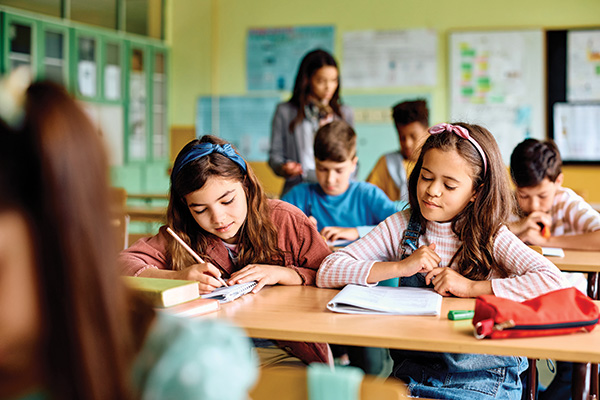Why Private Schools Focus on Mindfulness and Wellbeing

In recent years, private schools have increasingly prioritised mindfulness and wellbeing as part of their educational ethos. With growing recognition of mental health’s impact on learning and personal growth, many institutions see these programs as essential for fostering a balanced, supportive, and resilient learning environment. Here’s why private schools are investing in mindfulness and wellbeing initiatives and how it benefits students.
Responding to Increasing Mental Health Concerns
Private schools are often proactive in responding to mental health challenges facing young people today. Rising academic pressures, social media influences, and the complexities of modern life can affect students’ mental health. By incorporating mindfulness and wellbeing programs, these schools aim to provide students with tools to manage stress, anxiety, and emotional pressures. For example, mindfulness practices encourage students to focus on the present moment, fostering a sense of calm and reducing overthinking or worrying about future outcomes.
Supporting Academic Performance Through Wellbeing
While academic success remains a key goal in education, there’s an understanding that students perform best when they feel emotionally balanced. Mindfulness and wellbeing initiatives support this by helping students develop coping skills that allow them to face academic challenges with a resilient mindset. Studies have shown that mindfulness can improve concentration, reduce test anxiety, and enhance problem-solving skills—all of which contribute to academic success. Private schools with a strong focus on holistic development recognise that thriving students are more engaged, motivated, and ultimately, better prepared for academic challenges.
Building Emotional Intelligence and Social Skills
Like this private school in Westminster, they often emphasise the importance of soft skills alongside academic achievements, and mindfulness plays a critical role in developing these areas. Mindfulness practices, like meditation or reflective exercises, encourage students to understand and process their emotions, leading to increased self-awareness and empathy. This self-understanding builds a foundation for emotional intelligence—a skill crucial for building healthy relationships, resolving conflicts, and communicating effectively. Wellbeing programs often incorporate group activities that allow students to practice social skills and build friendships, fostering a more positive school culture.

Preparing Students for Life Beyond the Classroom
A key focus of private education is to equip students with skills for life beyond academics, and mindfulness is an invaluable tool in this regard. Learning techniques to manage stress, stay focused, and maintain emotional balance is crucial in a fast-paced, often demanding world. Private schools aim to give students lifelong skills that go beyond the classroom, such as resilience, self-regulation, and the ability to navigate personal and professional challenges. In this way, mindfulness and wellbeing initiatives help students develop a growth mindset, empowering them to handle setbacks and view challenges as opportunities for personal development.
Creating a Nurturing School Environment
An added benefit of incorporating mindfulness and wellbeing programs is the positive impact on school culture. Private schools often value close-knit communities, and these programs foster a sense of inclusion, respect, and shared responsibility for each other’s wellbeing. By integrating mindfulness practices, schools cultivate a nurturing environment where students feel safe and supported, both academically and emotionally. This holistic approach builds a community where students and teachers can thrive together, creating a supportive network that prioritises each person’s wellbeing.
The emphasis on mindfulness and wellbeing in private schools reflects a shift towards a more balanced and student-centred approach to education. These initiatives not only support mental health but also enhance students’ academic performance, social skills, and personal growth. By investing in these programs, private schools equip students with essential life skills that benefit them well beyond their school years, helping to shape resilient, compassionate, and confident individuals.








